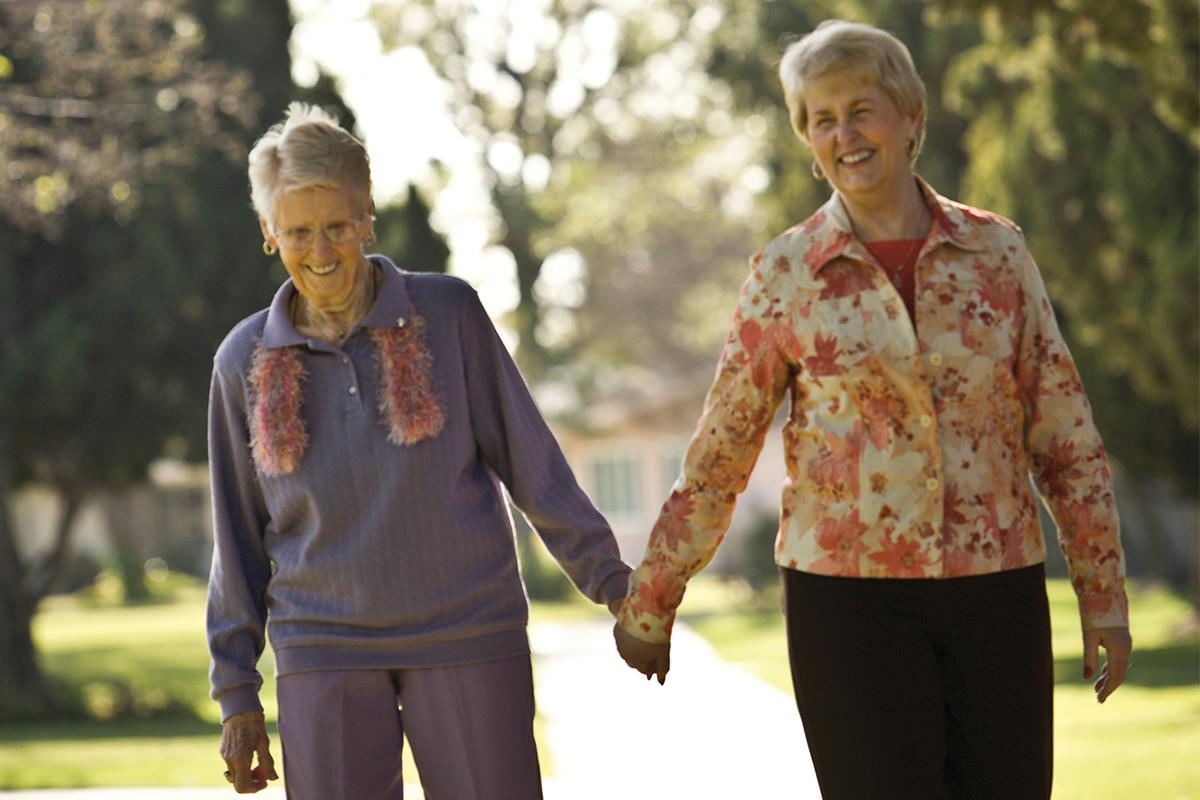Prior to COVID-19, there were already 7.8 million caregivers in Canada (Statistics Canada, 2018), many of them adults themselves in their 60s and 70s, caring for older parents aged 85 and older. The strain on family caregivers has increased with the impact of the pandemic, whether that’s lending a hand to an aging spouse, parent, relative or friend.
For every family caregiver—veteran or newcomer—it can often feel difficult to balance personal obligations such as work and caring for children, in addition to daily caregiving responsibilities. The challenges of tending to a loved one can place significant stress on the one overseeing care. Gradually, this stress can build up and lead to caregiver distress—a situation where an individual may become more susceptible to other health risks such as high blood pressure, diabetes and increased risk of stroke.
It’s very common to see caregivers placing the needs of their loved ones before their own. But caregivers, just can’t pour from an empty cup. By taking time to tend to your own needs and acknowledge the challenges you might be facing, you can create an environment that is healthy and rewarding for every person involved.
While caring for an older adult can be a meaningful and fulfilling experience, the daily duties of caregiving can still prompt isolation and self-neglect.
5 Tips to Keep Self-Care Top of Mind for Family Caregivers
- Schedule “me time.” Even just a few mindful moments each day can help reduce feelings of stress or resentment. A quick walk around the block, a 30-minute music break or a three-minute deep breathing exercise on a meditation app can make all the difference. If you’re struggling to find time for just yourself, try asking other family members and friends to momentarily step in. Or, consider seeking out a professional caregiver for intermittent help.
- Create a gratitude jar. It can be easy to lose sight of why you took on this role in the first place. Try to remain optimistic by using note cards to record what you are thankful for. Place them by your desk or bedside table – and at the end of the year or season, reflect on the small moments that made you smile. This simple exercise can even retrain your brain for positive thinking. If you need help getting started, try filling in the blank: The best part of being a caregiver is __________.
- (Actually) unplug. Plan for respite care to take single days off or even enjoy a week-long vacation. When you’re away, stay away. Talk about things other than caregiving, crack open a book you haven’t been able to get to and treat yourself to something special as a reward for everything you’ve accomplished. Whenever possible, avoid long periods of time on social media, which can leave you comparing yourself to others or feeling down in the dumps about your current situation.
- Explore workplace benefits. Balancing a career and caregiving can come with its own set of challenges. But oftentimes, employees aren’t aware of what their company offers in the way of family-friendly benefits. Especially now during the current work environment, many companies have introduced flexible arrangements, such as more paid time-off or remote working solutions. Take time to familiarize yourself with the benefits your employer may offer, and be sure to use them to your advantage.
- Join a support group. Social distancing can create feelings of isolation for caregivers, but it doesn’t have to be that way. Dedicate time each week to connecting with other caregivers and lifting one another up. Lean on your own support group, whether your “team” is friends, family or even an online community like Home Instead’s Caregiver Stress Facebook page.
Practicing self-care is not selfish. We are all living in uncertain times and adjusting to the new normal. By making time for yourself, you can ensure you’re able to provide the best care for your loved one for years to come. And, most importantly, don’t forget that the care you’re providing is making a significant impact on your loved one.
For more resources to help manage stress or identify the things that might make caregiving more challenging for you, visit CaregiverStress.com.



